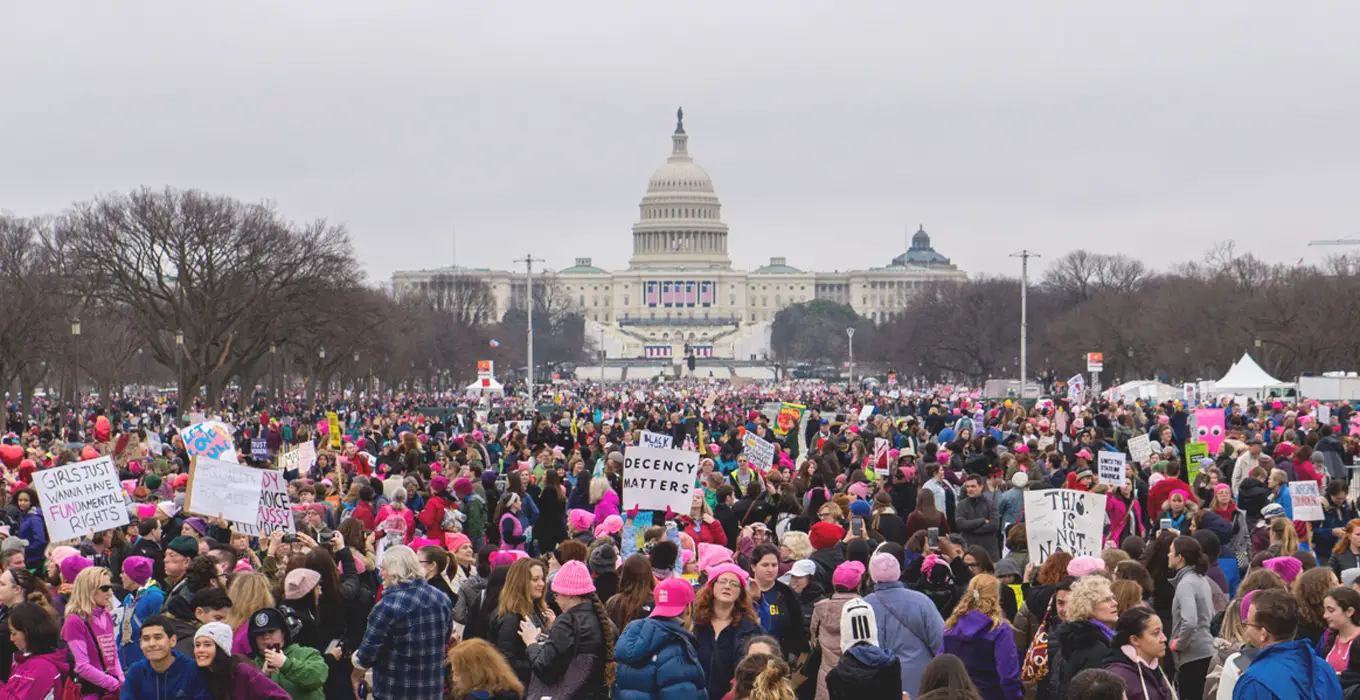Student activism on college campuses has had a long and impactful history coinciding with most major national historical events. From anti-war student protests in the sixties and seventies, to Civil Rights and now as a reactionary tool to our political climate today. College students have proven to be some of the most radical, outspoken and arguably effective actors in getting attention for their cause from the greater outside world.
Following the presidential inauguration and the results of the 2016 election, protests and marches on-and off-campus saw turnouts like never before. In fact, according to a survey conducted by UCLA in 2016, the most recent class of incoming students is more likely to be politically engaged and participatory in marches and movements than ever before. Additionally, black students are even more likely to participate in social and political movements than any other racial group.
Not everybody knows where to look to start participating as a political citizen. Regardless of whether you want to act independently, or with a group, knowing the best way to get started will make it easier for you to jump into the scene of political activism as quickly as possible. No matter your political viewpoint or worldview, it’s important to exercise your civic rights and stand for the messages you believe are worth it. Here are five ways to help you do just that.
1. Go Vote
This is the easiest, and most effective way for anybody to make a difference. Voter turnout for local elections—the elections that have a direct impact on daily life in your community—is notoriously low. In many counties across the country, single digit voter turnout is not uncommon. It’s hard to make any changes to the structure of a body of government, let alone tackling larger issues of social injustice, when citizens don’t come out to vote.
You can either register to vote in your hometown, if you only live part of the year at school, or you can register in your college hometown if you’re a full-time resident. A lot of campuses make it easy for you to get registered by hosting tabling events for months before an upcoming election, so excuses on not knowing where to get registered are pretty weak.
Most counties will post the ballot to be voted on for Election Day, including bills, proposals and candidates. Take time to study the ballot in order to become a more informed voter. A quick Google search can even suffice in a time crunch, as long as you make some effort to show up knowing what you’re voting for and not just pressing buttons at the voting machines.
2. Find An Organization
Discovering an organization in which to align your political ideals is a great way to start getting involved quickly. They already have an established power structure, goals, a way to execute their plans and a pool of resources that an individual may not possess on their own. There are generally political organizations on campus that cover the entire political spectrum, from liberal to conservative and everything in between.
Finding the right organization can be daunting depending on the size of your school and the number of student-led organizations already established. Most schools will have a registry, as well as a description of the group, posted online for other students to get involved. Keeping your eye out for groups that host tabling events, post flyers and are active on campus is the best way to find one without actively looking.
Eventually you may find that the structure or ideals of the organization you found don’t necessarily line up with yours, but you can still be a powerhouse of political change on your own. Do what feels right and worry about the logistics later.
3. Join Or Stage A Protest
Unfortunately, most protests and marches that occur on campus free speech zones are heavily regulated by entities such as the Dean of Students or Student Affairs, and require planning beforehand to receive a permit to even assemble as a group. But as long as you take the time to understand the procedure in gaining proper permission as required by your school’s policy—which can almost always be found online—you should have no problem executing your protest.
Some protests are impromptu and grow with the number of bodies that start to congregate en masse. After the election, many students felt the need to just gather in the library mall at my university to share personal stories on how the election affected them, their thoughts and fears for the future as well as finding a sense of what could be done post-election results. None of this was planned, but sprung from a need to join together in political discussion during a time of unrest.
Whether planned or not, simply bringing your physical body to a protest or movement adds strength in numbers and is significant action for any political activist.
4. Get Connected
Social media is a great tool used by many political movements as a way to connect individuals on a large scale. The Black Lives Matter movement that started on Twitter, as well as the use of social media in overthrowing oppressive regimes during the Arab Spring are both successful examples of connectivity on social media directly affecting the impact of these movements.
If social media isn’t your thing, good old-fashioned networking in your local community will undoubtedly lead you to a strong core of people active in civic engagement and local politics. Going to city council meetings, candidate meet and greets and local government happenings are easy places to meet up with people that can help you on your journey to getting more politically active. Finding like-minded people will not only afford you greater opportunities to get involved that you may not have known of before, but will also provide you with a support system on which to lean on.
5. Stay Informed
In a world of “fake news” and constant spreading of misinformation in the citizenry and governmental bodies alike, knowing your shit and knowing it well is more important than ever. Take the time to research all the facets and subtle information relevant to issues that matter to you. Don’t be the person that engages in political discourse and finds themselves spewing information off the top of their heads without any valid research or news articles from which to draw upon. In fact, verifying everything before disseminating information to your friend groups will also save you some social embarrassment.
Don’t be afraid of information that challenges your worldview either. Stories and issues are complex and can’t be understood from just one viewpoint, so think critically, but keep an open-mind to that which can mold your understanding into a better, more informed one. The best place to start getting politically active is within your own mind, forming opinions and values based upon your experience and the shared truth of others.
No matter your motivations to get active, it’s imperative that you do. Peaceful protests and movements of change are conducive to a free and independent democracy and are woven into the fabric of our American being. Without exercising your right to assemble and petition the government, nothing will ever change. It doesn’t matter where you fall on the ideological spectrum or whom you vote for, what matters is not being a passive citizen, but rather an active one that strives for better.










[…] Source […]
[…] leadership role in College Dems introduced Kay to a wide array of students with varying degrees of political interest and […]